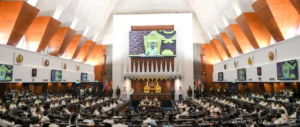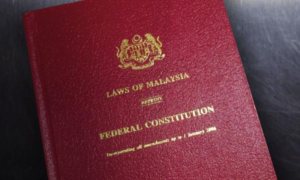The first state election — since the Sabah State Election last year which triggered waves of COVID-19 infections nationwide — will be held in Melaka on 20 November 2021. Nomination day will be on 8 November and the campaigning period is from 8 to 19 November.
On 24 October, the Ministry of Health (MOH) prohibited activities, gatherings, and social events related to the Melaka State Election from 25 October to 27 November 2021.
The prohibition is based on regulation 10(1) of the Prevention and Control of Infectious Diseases (Measures within Infected Local Areas) (National Recovery Plan) Regulations 2021 (NRP Regulations), which states as follows:
Control of gathering
10. (1) No person shall, during any designated phase, gather or be involved in any gathering in any premises within any infected local area whether for religious, wedding, sports, recreational, social or cultural purpose.
(2) Notwithstanding subregulation (1), a person may, during any designated phase, gather or be involved in any gathering subject to any directions and conditions issued by the Director General.
(3) Any directions and conditions issued by the Director General under subregulation (2) shall be published in the website of the National Security Council.
Any person who contravenes regulation 10(1) is subjected to a fine not exceeding RM50,000 or to imprisonment for a term not exceeding six months or to both; see regulation 17(1) of the NRP Regulations.
Is the MOH’s prohibition lawful?
Given the MOH’s stand, candidates and political parties are prohibited from holding any physical election campaign activities leading up to the state election.
This stand is unlawful for two reasons.
First, section 24B of the Election Offences Act 1954 (EOA) allows such activities to take place during the campaign period.
The relevant parts of section 24B are as follows:
24B. Election campaign and limitation thereof.
(1) Subject to the provisions of this Act, a candidate or his election agent may hold election campaign during the campaign period.
…
(3) A candidate or his election agent may, during the campaign period —
(a) hold, convene or organize any open public meeting, open public rally, open public display or open public entertainment; or(b) give any open public address or open public lecture,
in the constituency in which the candidate seeks election but only if he holds a permit to do so issued to him by the police officer in charge of the district where the meeting, rally, display or entertainment is to be held or the address or lecture is to be given.
The NRP Regulations is a piece of subsidiary legislation under the Prevention and Control of Infectious Diseases Act 1988 and cannot take precedence over or supersede section 24B. Section 24B is in the EOA and is to be considered primary legislation.
Thus, any candidate or his or her election agent exercising their legal right under section 24B cannot at the same time be penalised for an offence under regulation 10 of the NRP Regulations.
On this basis, it would be unlawful for the MOH to enforce regulation 10 because it conflicts with, and cannot override, section 24B.
Second and more fundamentally, the MOH cannot prohibit a person from exercising the right to freedom of assembly even on the grounds of public health.
Freedom of assembly is enshrined in Article 10 of the Federal Constitution and forms an indispensable part of democracy, more so during an election period when it is vital for voters to assemble and have a free exchange of information to assist them in making their voting decisions.
Proportionality and the protection of freedoms
Prohibitions on the freedom of assembly will inevitably impact the right to freedom of association, speech, and expression. These are fundamental rights that empower citizens to fully participate in the issues that affect them and allow them to hold powerful politicians and political parties to account. These rights form the foundations of a democratic society.
Under Article 10(2), Parliament may restrict the right to assemble only on the grounds of national security and public order. Any restriction cannot amount to a complete prohibition, for otherwise, it would render this right illusory. The restrictions imposed by Parliament must also be proportionate to the legitimate aim they seek to achieve, passing the test set out under Article 8(1) of the Constitution.
In a nutshell, MOH’s blanket ban is unlawful because:
- Public health is not a recognised ground to restrict one’s right to freedom of assembly.
- Such a blanket ban goes beyond a mere restriction and amounts to a complete prohibition.
- The ban is arbitrary and disproportionate, particularly because the restrictions on most economic and social aspects of life in Malaysia have already been lifted throughout the country.
Would it not be more proportionate to allow campaigning activities but to subject them to strict physical distancing restrictions, policed by greater enforcement? This would ensure a fair balance between safeguarding public health and the right to freedom of assembly.
We should be allowed to exercise our fundamental liberties and democratic rights while the state addresses public health concerns — they need not be mutually exclusive.
On the same subject, see also the article published by Malay Mail.




